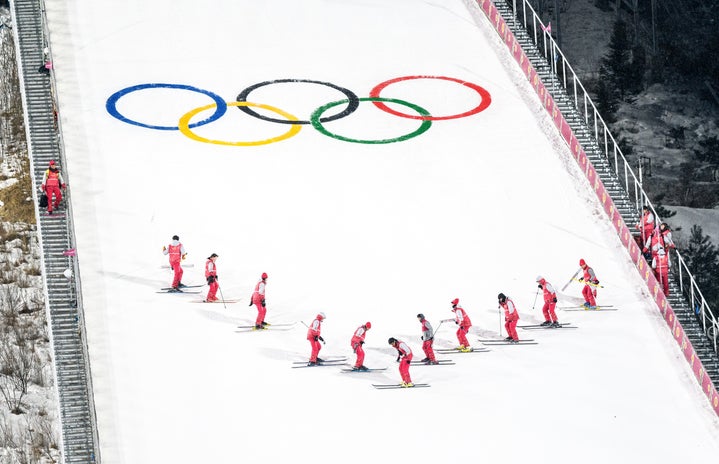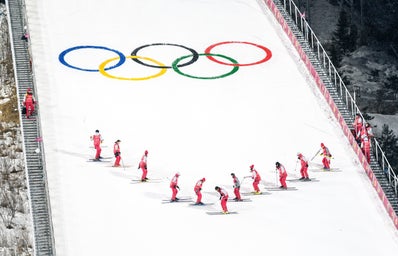The Olympics have long been recognized as a time when the world comes together to watch top athletes perform. There are large crowds, traveling from a multitude of countries and overall celebrations. With all the uncertainty about the Omicron variant, everything that usually categorizes the Olympics might be at a halt.
The winter games are set to begin on Feb. 4, 2022 in Beijing with an opening ceremony taking place two days before. While this is the first time Beijing has hosted the winter games, they hosted the Summer Olympics back in 2008.
This past summer, we were able to see what the Olympics looked like during a global pandemic. Back in August, the Delta variant was prominent, but the games were still able to be carried out. China has typically taken coronavirus restrictions very seriously, and they will continue to do so as they open up their country for the athletes.
Let’s look at the strict protocols being implemented for athletes and participants.
All athletes and participants, such as event staff members, must be vaccinated in order to access the Olympic village and training facilities. Lack of vaccination will subject individuals to a 21-day quarantine. Upon boarding the plane, individuals must show proof of two negative COVID tests.
Vaccines were not required at the Tokyo summer games.
Once arriving in Beijing, individuals will be tested for COVID and will have their temperatures taken. Transportation will take them to a space where they will wait about six hours to receive their results. If negative, participants will be allowed to continue on to approved areas. Daily swab testing will be required which is different from the saliva spit tests conducted in Tokyo.
As far as testing positive goes, the response depends on each individual case. An asymptomatic participant will be put into isolation in a hotel. After two days if they have a negative test and still no symptoms, they will be allowed to leave isolation.
An individual that tests positive and is symptomatic will be isolated in a hospital. Before leaving, they will need to have two days of negative tests and three days of subsiding symptoms.
Typical social distancing measures will be set in place, except for when the athletes themselves are competing. When athletes are not competing, they will be required to wear N95 masks along with the event staff.
If there’s one thing that’s most different from regular Olympic games, it’s the size of the crowds. The regular fans from all over the world will be watching from home this year. Officials are still determining if they will allow local fans to spectate.
Regardless of who ends up attending to watch in-person, they are asked to clap for cheering, rather than shout. This is the same policy that was seen in Tokyo.
As time goes on, we learn more about the virus and its various strains. Many of the policies from Tokyo will be seen this February, with additional and more severe measures. The restrictions set in place reflect the cautious way our world is trying to get back to normal.
Sources:
https://www.cnn.com/2021/05/26/world/2022-beijing-winter-olympics-fast-facts/index.html


